Wondering what’s the best way to eat guava? Think of it as you’d think of an apple. Just rinse it off and bite into it. The skin, flesh, and seeds are all edible.
Which fruits are high in protein?
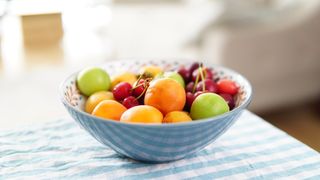
If you’re trying to hit a certain daily protein target in order to build muscle or lose weight, you might wonder which fruits are high in protein. There are many excellent sources available, and while the small amounts of protein contained in fruit may not make a huge difference to your overall consumption, they can still give you an extra protein boost.
Including fruits in your diet is also a great way to top up your intake of vitamins, minerals, fiber and health-promoting phytonutrients. However, fruits can’t be considered muscle-building foods. To make up the bulk of your protein requirements, it’s best to focus on including high protein foods in your meals, or invest in the best protein powder.
But if you want to achieve your fitness goals with more ease, here are seven fruits that are high in protein to include in your diet.
1. Guava fruit
When it comes to high protein fruit, guava takes the crown. It contains almost 4.2g of protein per cup, making it one of the most protein-rich fruits around.
Guava is a tropical fruit cultivated mostly in Central and South America. It’s known for its crunchy texture and sweet flavor that resembles a cross between pears and strawberries. Guava is a great source of fiber, vitamin C and potassium.
A review article of various studies published in Open Access: Toxicology & Research (opens in new tab) also suggested that guava contains health-promoting antioxidants, including quercetin, catechin and isoflavonoids. These compounds have been shown to have strong anti-inflammatory and antibacterial properties.
Wondering what’s the best way to eat guava? Think of it as you’d think of an apple. Just rinse it off and bite into it. The skin, flesh, and seeds are all edible.
2. Avocado
When thinking about fruits high in protein, chances are avocado wouldn’t cross your mind. However, this green, creamy fruit packs in a surprising amount of this macronutrient – almost 3g per cup.
At the same time, avocado is low in sodium and carbohydrates, so can easily fit into a low-carb diet, and is an excellent source of healthy fats, prebiotic fiber and potassium. According to a review published in the Nutrients (opens in new tab) journal, regular consumption of this green fruit can significantly reduce your risk of cardiovascular disease and improve your gut health.
Avocado is a versatile fruit. You can blend it to make guacamole, mash it on your toast or add it into a salad. Some people like their avocado sweet, served with sliced peaches and drizzled with honey.
3. Apricots
A cup of sliced fresh apricots contains nearly 2.2g of protein, while a cup of dried ones provides nearly 5g of this important macronutrient. Apricots are also low in calories, making them a perfect choice for those who want to lose weight.
Apricots are rich in vitamin A, vitamin C, vitamin E, carotenoids, potassium and zinc. They also contain a significant amount of health-promoting flavonoids, as described in the Molecules (opens in new tab) journal. Active compounds like catechin, quercetin, and chlorogenic acids may be credited for the anti-cancer, antioxidant and antiviral properties of apricots.
Apricots serve well as a quick, nutritious snack. Add them to a homemade trail mix or toss them in a salad to reap all the benefits of this high-protein fruit.
4. Kiwifruit
Kiwis are known for their refreshing, slightly acidic flavor that adds an exotic twist to smoothies and fruit salads. Perhaps a lesser-known fact is that this exotic fruit is high in protein and can provide almost 2.1g in a single cup.
Kiwis are low in calories and high in micronutrients such as potassium, vitamin C, vitamin E and vitamin K. According to a review published in the European Journal of Nutrition (opens in new tab) , regular consumption of this fruit can also ease the symptoms of constipation and irritable bowel syndrome.
5. Blackberries
Although the strong acidic flavor may not be to everyone’s liking, blackberries are one of the healthiest berries around. One cup of raw blackberries contains nearly 2g of protein, while packing almost 8g in fiber and providing less than 7g of sugar.
Blackberries are also rich in manganese, magnesium, vitamin C and vitamin K.
Blackberries can be easily added to your breakfast muesli bowl or sprinkled into plain yogurt. These high-protein fruits are also great in smoothies, salads and desserts.
6. Oranges
One medium-size fresh orange contains around 1g of protein, while a cup of freshly peeled wedges provides up to 2g. This fruit is low in calories and high in fiber, vitamin A, vitamin C and calcium.
Owing to an array of powerful phytonutrients, citrus fruits boast many health benefits. Multiple studies (opens in new tab) have shown that oranges, lemons and other citrus fruits have strong antioxidant and anti-inflammatory properties, reducing your risk of developing cancer, heart disease and neurodegenerative conditions.
Oranges are great as a snack on their own or added to green salads, smoothies and chocolate-based desserts. You can squeeze them into a refreshing juice – although this way you may not get all of the protein.
7. Bananas
You can find a good amount of protein in bananas: one cup filled with sliced banana contains around 1.6g of this macronutrient. The fruit is rich in fiber and complex carbohydrates, making it a great source of energy even for the most demanding workouts.
Bananas also contain significant amounts of vitamin B6, vitamin C and potassium. And according to a review published in the Food Chemistry (opens in new tab) journal, they’re also high in many antioxidants and phytonutrients that may have a highly beneficial effect on our cardiovascular and nervous systems.
Bananas have a mild, sweet flavor that pairs well with many different dishes. Have it as a quick snack on-the-go, blend it into a smoothie or add it to your breakfast cereals – you can get creative with this high-protein fruit.
This article is for informational purposes only and is not meant to offer medical advice.
Health Writer
Anna Gora is a health writer at Live Science, having previously worked across Coach, Fit&Well, T3, TechRadar and Tom’s Guide. She is a certified personal trainer, nutritionist and health coach with nearly 10 years of professional experience. Anna holds a Bachelor’s degree in Nutrition from the Warsaw University of Life Sciences, a Master’s degree in Nutrition, Physical Activity & Public Health from the University of Bristol, as well as various health coaching certificates. She is passionate about empowering people to live a healthy lifestyle and promoting the benefits of a plant-based diet.
Fruits With the Most Protein
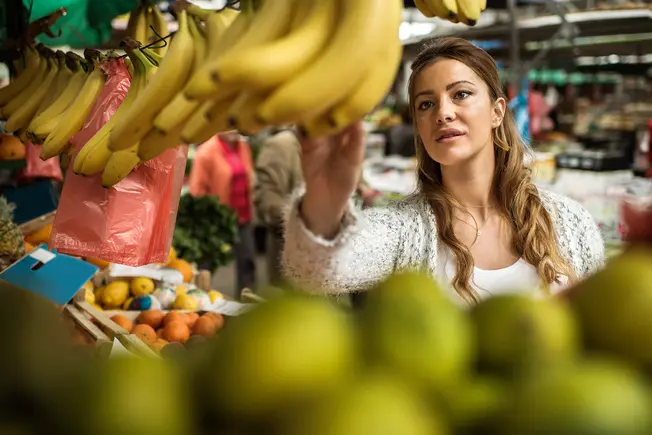
Fruit may not be the first thing that comes to mind when you think about sources of protein. But if you’re looking for some more of the stuff, every little bit counts. Certain fruits can be a sweet way to add an extra dose of this nutrient to your diet.
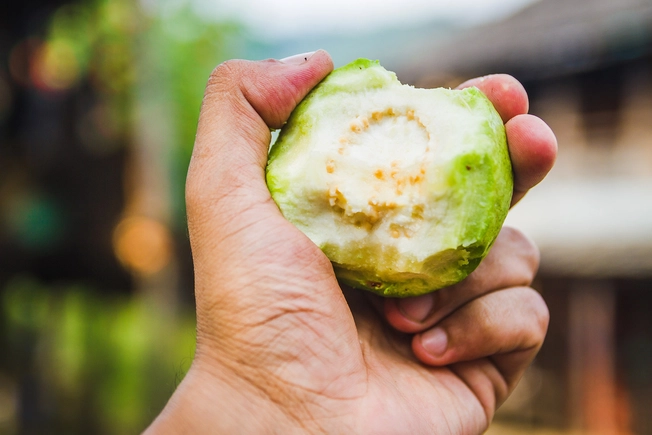
Guava
2/12
Guava is one of the most protein-rich fruits around. You’ll get a whopping 4.2 grams of the stuff in every cup. This tropical fruit is also high in vitamin C and fiber. Slice it up or bite right into it like an apple. You can even eat the seeds and skin, so there’s nothing to clean up!

Avocado
3/12
Mix up a batch of guacamole or mash some of this green fruit on your toast. A cup of it sliced or cubed packs 3 grams of protein. Mashed will give you 4.6. That’s on the high end for a fruit. It’s also full of healthy fat, fiber, and potassium, making it a smart addition to any meal. And did you know that some people eat it sweet? Try it with sliced peaches and drizzled with honey.
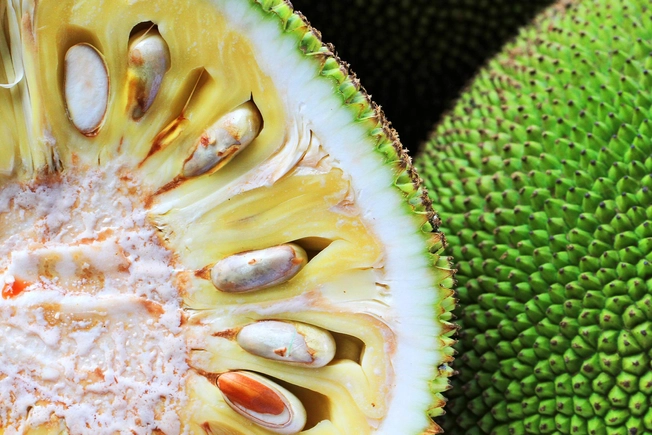
Jackfruit
4/12
This spiky relative of the fig has become a popular vegan meat substitute. You can roast pulled jackfruit and season it like chicken or pork. Then you can whip up vegan tacos or Thai curries with this versatile fruit. While its protein content is far lower than meat, jackfruit is fairly high in protein for a piece of fruit. It packs 2.8 grams of protein per cup.
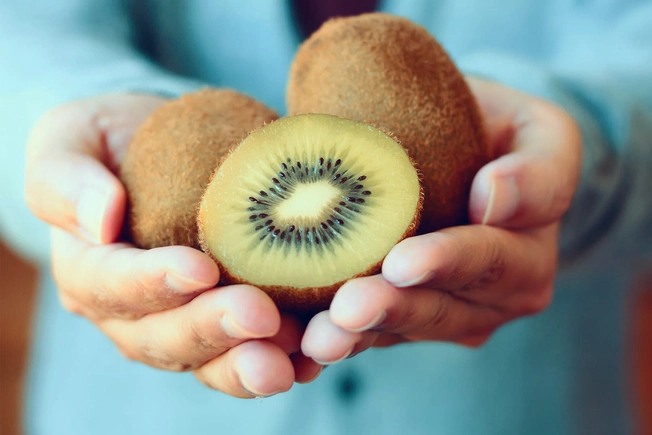
Kiwi
5/12
Kiwi will give you about 2 grams of protein per cup. And you don’t have to spend a lot of time preparing it. It’s perfectly fine to eat the skin. Just make sure you clean it well, then just slice and eat. The stubbly skin won’t hurt you. In fact, you probably won’t even taste it.
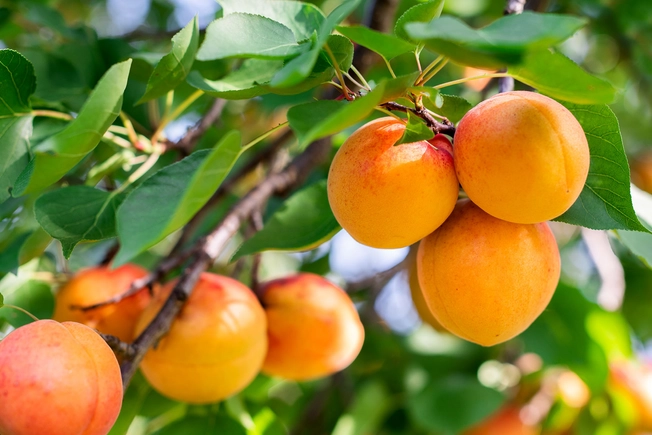
Apricot
6/12
A cup of it sliced clocks in at 2.3 grams of protein. Dried apricots also make for a quick and tasty snack. A quarter-cup serving will get you 1.1 grams of protein. Eat them alone, in a trail mix, or tossed in a salad.
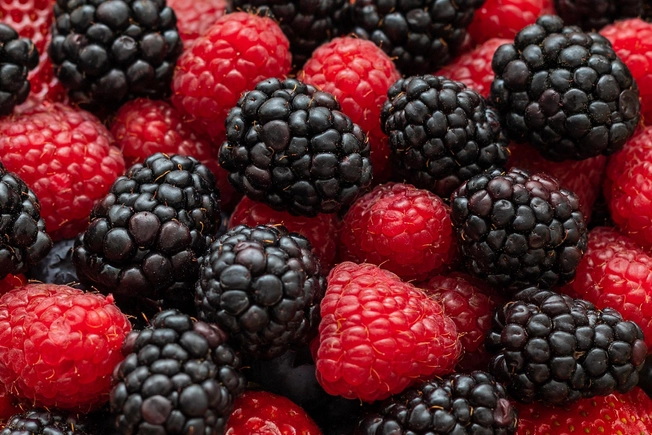
Blackberries and Raspberries
7/12
Not all berries are great sources of protein. But blackberries have an impressive 2 grams per cup. Raspberries are relatively high in protein, too. They serve up about 1.5 grams per cup. Snack on them alone or add them to yogurt for a protein-packed breakfast.
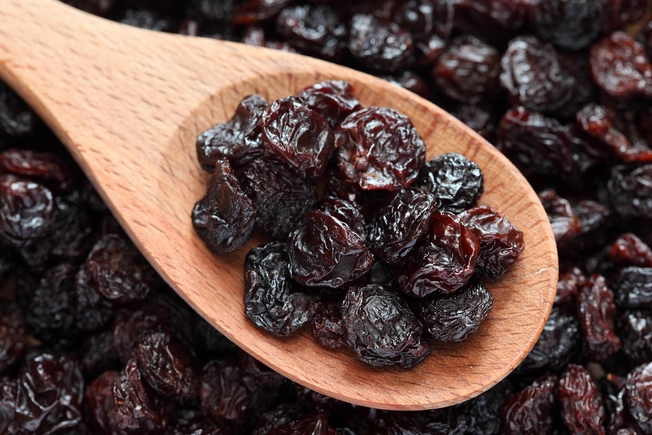
Raisins
8/12
If dried fruits are your thing, raisins are a good bet for protein. One ounce, or about 60 of the little guys, has nearly 1 gram of protein. Snack on them with nuts, sprinkle them on your oatmeal at breakfast, or toss them into a salad for a touch of sweetness.
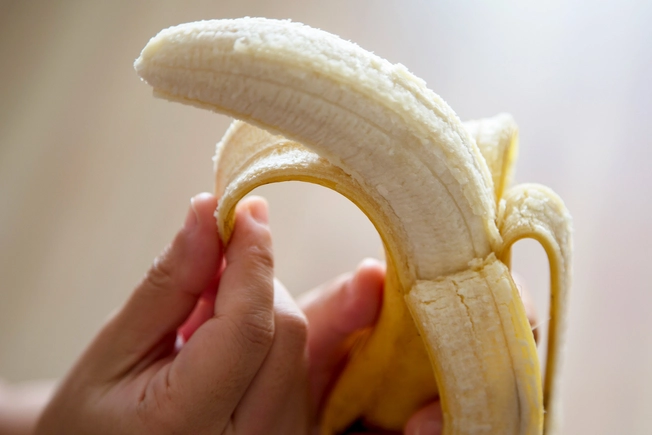
Bananas
9/12
They’re technically berries and they have a lot going for them. Bananas are high in potassium, convenient to eat on the go, and can fuel your body during a workout just as well as a sports drink, according to one study. As if that weren’t enough, one medium banana brings 1.3 grams of protein.

Grapefruit
10/12
Not only is this citrus fruit a vitamin-C superstar, but one medium grapefruit will give you 1.6 grams of protein. Think you’re just not that into them? Try this: Heat a halved grapefruit under your oven’s broiler for 5 minutes to caramelize the top, then sprinkle ground cinnamon over it and dig in with a spoon
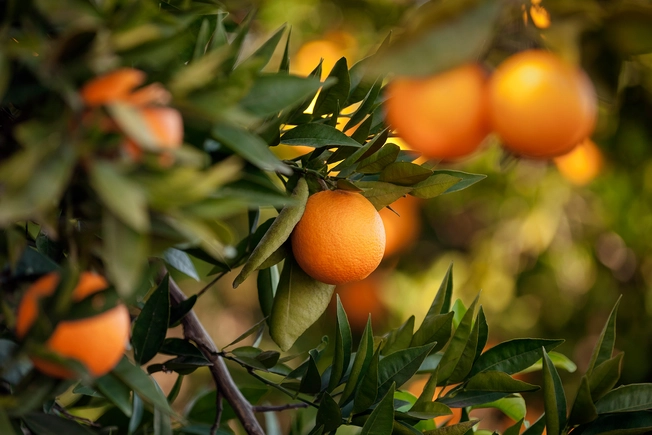
Oranges
11/12
These are another great source of vitamin C, and one medium orange packs 1.2 grams of protein. Don’t look to its juice for much of the nutrient, though. One cup only has half a gram. To get all the protein benefits of this citrus fruit, you’ll need to sink your teeth into its sweet flesh.
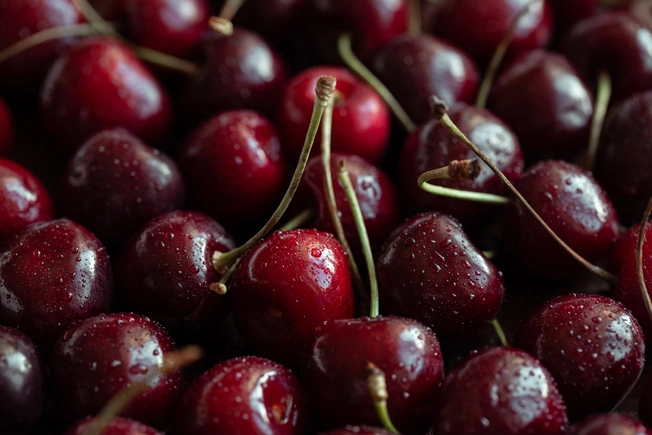
Cherries
12/12
These deep red stone fruits are one of summer’s sweetest treats, and they’re not too shabby on the protein front either. One cup of pitted cherries has 1.6 grams of protein. When they’re not in season, buy them frozen to blend into your smoothie.
Show Sources
IMAGES PROVIDED BY:
SOURCES:
U.S. Department of Agriculture FoodData Central.
PLOS ONE: “Bananas as an Energy Source during Exercise: A Metabolomics Approach.”






